About HCRC Hartford
HCRC (Health Care Resource Centers) is an outpatient treatment center for clients with substance use and co-occurring mental health disorders. They have multiple locations, including the facility in Hartford, Connecticut. This is specifically an opioid addiction treatment center offering medication assisted treatment (MAT) and counseling for co-occurring mental health disorders.
The treatment center accepts most commercial insurance and Medicaid. Payment plans are available. They have counselors to help you understand your insurance or assist you in finding other payment options.
The center is for clients 18 and up. The facility is near several beautiful spaces, such as Riverside Park and the Connecticut River.
Specialized Addiction Treatment for Pregnant Women
The treatment team offers support for pregnant women dealing with opioid addiction. They provide methadone maintenance, which is the preferred maintenance protocol for both the health of the mother and her unborn child.
All clients at the clinic receive individualized care that takes into account their unique needs. Medications are adjusted over time if necessary. The licensed staff strives to provide culturally competent care, and many clients have remarked on the approachable and supportive staff.
In addition to addiction treatment, clients receive medical and mental health treatment for better long term outcomes. The staff works to connect you with resources, such as support groups, to assist with your social needs.
Accessible Dosing Hours
Notably, this clinic offers early morning dosing hours. This makes dosing accessible to clients who have to be at work or attend school, and many clients have positively remarked on the flexible hours and convenience of this facility. They also have private dosing windows to protect each individual’s privacy and comfort.
The clinic is downtown and easily accessible by public transportation. The staff is dedicated to breaking down obstacles to treatment. They’re often able to accommodate walk-ins and there are no waiting lists.
Addiction Treatment Programs
Opioid Addiction
A treatment program in Connecticut can give you the tools and skills you need to overcome opioid addiction and reclaim your life. Common services include counseling and classes on coping skills, emotional management, communication, and other key life skills. Opioid rehab programs can provide inpatient or outpatient treatment.
Drug Rehab
Drug rehab in Connecticut provides professional treatment to help clients overcome substance misuse and build a drug-free life. The rehab program may use multiple approaches, including nutrition, psychology, holistic methods, and support groups. These tools help you build a substance-free lifestyle and move into long-term recovery.
Adult Program
Adult programs in Connecticut address a wide range of substance use issues while also helping clients with concerns such as raising children or building a career. In an adult program, the activities, peer support, and counseling are tailored to the unique needs of this age group. This may include talking about how to build a career, raise a family, and handle the many responsibilities of independent living.
Men's Rehab
A men’s rehab in Connecticut addresses the unique needs men have and allows them to build relationships in a gender-specific environment. In a men’s program, the activities, peer support, and counseling are tailored to the unique needs of men. This may include talking about career development, fatherhood, communication strategies, and more.
Women's Rehab
Those who join a women’s rehab program in Connecticut are given training in key life skills to help them address their unique challenges. In a women’s program, the activities, peer support, and counseling are tailored to the unique needs women have. This may include talking about building a career, motherhood, relationship safety, and more.
Young Adult Rehab
When people join a young adult rehab in Connecticut, they learn key life skills while receiving treatment. In a young adult program, the activities, peer support, and counseling are tailored to the unique needs of this age group. This may include talking about how to start a career, have a family, and live independently.
Insurance Coverage
Medicaid
When looking for ways to pay for rehab in Connecticut, consider Medicaid if you are struggling to afford treatment. Programs that accept Medicaid can offer any level of care, including detox, inpatient, and outpatient. Your out-of-pocket costs, if any, are likely to be very low.
Self-pay options
Paying out of pocket for addiction treatment in Connecticut is known as self-pay. You can get a medical loan, electronically send payment to the center, or even write a check. Talk to the rehab center about the fee structure, which may depend on the level of care.
Financial aid
When looking for ways to pay for rehab in Connecticut, consider asking about financial aid programs. Finding aid programs takes some research. Look for community groups or nonprofits in your area that may offer assistance, or ask individual treatment centers if they offer scholarships and grants.
Levels of Care
- 1
Detox Treatment
Alcohol and drug rehab in Connecticut generally starts with detox, which lets you start fresh on building a new life. Detox gets you ready to start building new habits, creating healthy relationships, and learn healthy coping strategies and other essential life skills.
- 2
Outpatient Rehab
If you’ve recently finished a residential treatment program, participating in outpatient treatment in Connecticut can help you reinforce and practice your new habits. During outpatient treatment, clients have independence outside of sessions, allowing them to work, attend school, and practice their new habits in real-world situations.
- 3
Aftercare Support
In Connecticut, aftercare allows you to access additional resources and support to help you avoid relapse after treatment. A strong aftercare program can include ongoing counseling, education and employment support, housing services, and connections to community resources.
Therapies
Cognitive Behavior Therapy
Cognitive behavioral therapy in Connecticut involves being aware of how your thoughts are connected to your feelings and behavior. CBT can help you identify and challenge maladaptive thoughts, calm your mind, and face your fears rationally.
Family Therapy
Many people have challenging family backgrounds, and addiction can create unhealthy dynamics as well. Family therapy in Connecticut allows you to address these concerns. Family therapy is a common part of both inpatient and outpatient substance use treatment and may be used to help address trauma, build better relationships, and help loved ones become part of your support network.
Group Therapy
It’s easy to feel isolated when you battle addiction, but group therapy in Connecticut can show you you’re not alone. In rehab, group therapy is only one of the elements of treatment, along with activities, peer support, individual counseling, relapse prevention, and more. Together, all these methods support you in establishing long-term recovery.
Individual Therapy
Individual therapy in Connecticut can provide professional support and accountability as you work through substance use treatment. Substance use treatment includes detox, inpatient treatment, and outpatient care, and individual therapy may be a part of each of these stages. The goal is to help clients address the roots of addiction, develop motivation to change, and create new habits for a substance-free life.
Trauma Therapy
Trauma is an emotional response to a terrible event, and some people use substances to numb those emotions. Trauma-informed therapy in Connecticut can help you address what happened and consciously create a healthier response. Substance use and trauma are interrelated, and trauma-informed therapy involves working with the therapist and your support network to create healthy coping skills, become empowered, and improve resilience.
Accreditations
Location
Contact HCRC Hartford
Top Drug Rehab Centers in Connecticut
-
 Connecticut
ConnecticutAware Recovery Care North Haven
556 Washington Ave, Unit 201 North Haven, Connecticut 06473
-
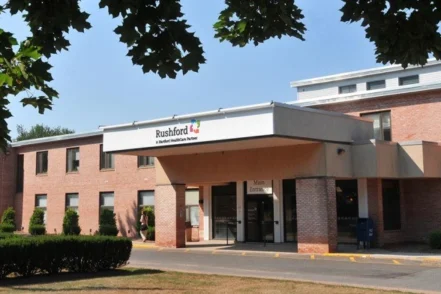 Connecticut
ConnecticutRushford Center Meriden
883 Paddock Avenue Meriden, Connecticut 06450
-
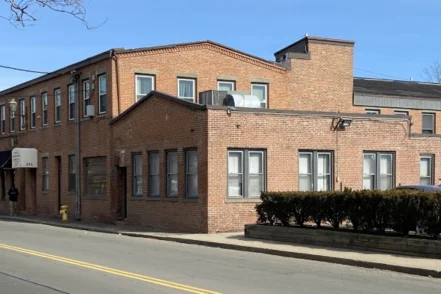 Connecticut
ConnecticutNew Era Rehabilitation Center New Haven
311 East Street New Haven, Connecticut 06511
-
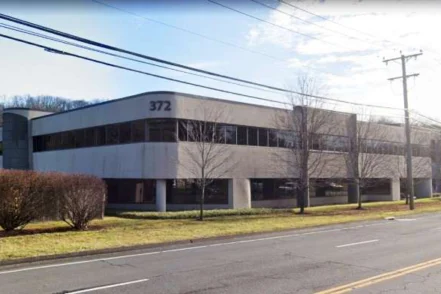 Connecticut
ConnecticutMountainside Wilton
372 Danbury Road Wilton, Connecticut 06897
-
 Connecticut
ConnecticutSilver Hill Hospital
208 Valley Road New Canaan, Connecticut 06840
-
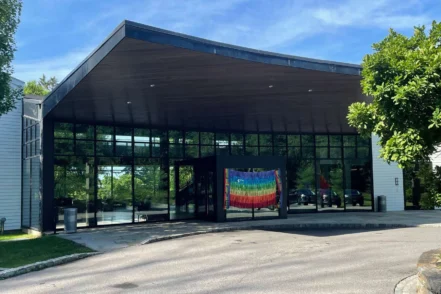 Connecticut
ConnecticutMountainside Treatment Center Canaan
187 South Canaan Road Canaan, Connecticut 06018
-
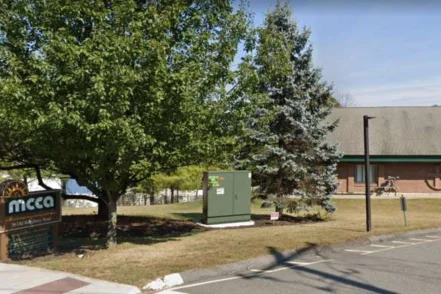 Connecticut
ConnecticutMCCA Midwestern Connecticut Council on Alcoholism McDonough House
38 Old Ridgebury Road Danbury, Connecticut 06810
-
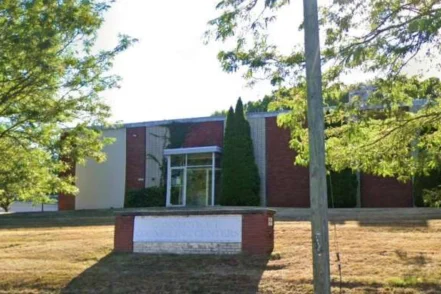 Connecticut
ConnecticutConnecticut Counseling Centers Inc
60 Beaver Brook Road Danbury, Connecticut 06810
-
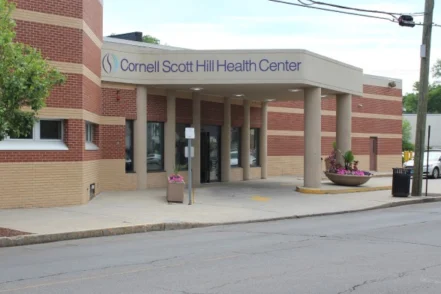 Connecticut
ConnecticutCornell Scott Hill Health Center 400 Columbus Avenue
400 Columbus Avenue New Haven, Connecticut 06519

